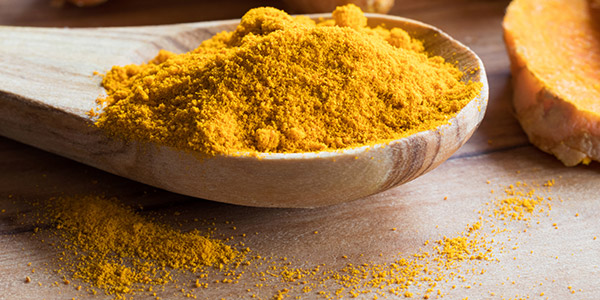Start Your Own Kitchen Pharmacy
As an integrative doctor with a background in Ayurveda, I frequently refer to a certain group of spices as “The Kitchen Pharmacy.” That’s because, in Ayurveda, spices are considered truly medicinal, and there are 12 that I tend to promote with patients — mainly because of research reflecting their health benefits, but also because they are more available and easier to use than some of the more obscure spices.

My 12 go-to spices are turmeric, ginger, cinnamon, cumin, black cumin, fenugreek, clove, fennel, coriander, allspice, curry leaf, and saffron. They share one main healing effect: They protect your body from oxidative stress through a rich array of antioxidants. (Obviously, there are other foods — primarily fruits and vegetables — that also pack an antioxidant wallop). Individually, they have specific impact in a number of important realms — brain function, heart health, inflammation reduction, mood and blood pressure control, and blood sugar regulation, among others.
Antioxidant Power
So what is oxidative stress and how do antioxidants work against it? Oxidative stress is the strain placed on your body as a result of internal processes like metabolism, and external factors like environmental pollutants, radiation and toxins. Oxidative stress is caused by free radicals, which are molecules that directly damage proteins, DNA and other components of our cells. The main benefit of antioxidants is that they protect your body from the damage caused by free radicals.
So, if antioxidants are so great, why suggest whole foods and spices as a delivery mechanism? Why not take a lot of them in supplement form? The answer is a little complicated, but worth knowing.
The old idea about antioxidant intake was this: When your body runs low on them — just like your car runs low on gas — you “fill up the tank” with more antioxidants to protect against oxidative stress. The latest research shows that it is not that simple. In fact, some oxidative stress is beneficial and too much antioxidant can be harmful.
A good example is exercise. When you lift weights, you injure the muscles you working by creating small tears in them. With adequate nutrition and rest, those muscles will repair themselves and be even stronger and healthier than they were before. On the other hand, if you suddenly lift a ton of weight, you could cause major injury that isn’t easily repaired. Bottom line: A small amount of stress makes you stronger, but too much stress is harmful.
Antioxidants in fruits, vegetables and spices activate some pathways of oxidative stress, but your body responds by triggering cellular repair pathways and stimulating intrinsic antioxidants. The low-level stress and damage elicit a response in your body that makes it stronger and more resilient. Meanwhile, taking antioxidants in supplement form is likely to be unhelpful or even harmful. In fact, studies have shown no benefit (and in some cases even possible harm) from taking antioxidant supplements.
So, open a Kitchen Pharmacy and stock up on healthy foods. And don’t forget my favorite spices to make it interesting.
The Dynamic Dozen
- Tumeric — Studies show high antioxidant potential, anti-inflammatory properties, brain function preservation and heart protection.
- Ginger — A digestive healer, analgesic and anti-inflammatory used in Ayurvedic medicine to fight infection.
- Cinnamon — A natural antimicrobial with anti-inflammatory properties. Studies show its promise in treating metabolic issues, such as elevated blood sugar and abnormal lipids.
- Cumin — Nutrient dense, an excellent source of iron and minerals such as manganese, potassium, calcium, magnesium and phosphorus. It shows promise in regulating blood sugar, normalizing cholesterol, and supporting bone health.
- Black Cumin — A veritable goldmine of medicinal properties, it has been show in clinical studies to have anti-inflammatory, pain-relieving, immune-boosting and fever-reducing properties.
- Fenugreek — Studies reflect that this spice, revered in Ayurveda, helps lower blood sugar and improve cholesterol and triglyceride levels.
- Clove — An antioxidant superpower that reduces inflammation, supports wound healing and relieves pain.
- Fennel — One of the most highly valued spices in the Ayurvedic pharmacopeia, it strengthens digestion, reduces inflammation, and clears toxins.
- Coriander — Especially helpful for digestive complaints, this potent antioxidant in essential oil form can be effective in fighting infection.
- Allspice — With at least 25 active antioxidant compounds, this spice also has been shown to have antiviral and antibacterial qualities to fight infection, as well as analgesic properties to help relieve pain.
- Curry Leaf — With more antioxidants than most other green leafy plants, it is used in traditional Ayurvedic medicine to help with diabetes, heart disease and chronic inflammation.
- Saffron — Studies have shown that saffron is effective in uplifting mood and treating depression, and relieving symptoms of PMS.





